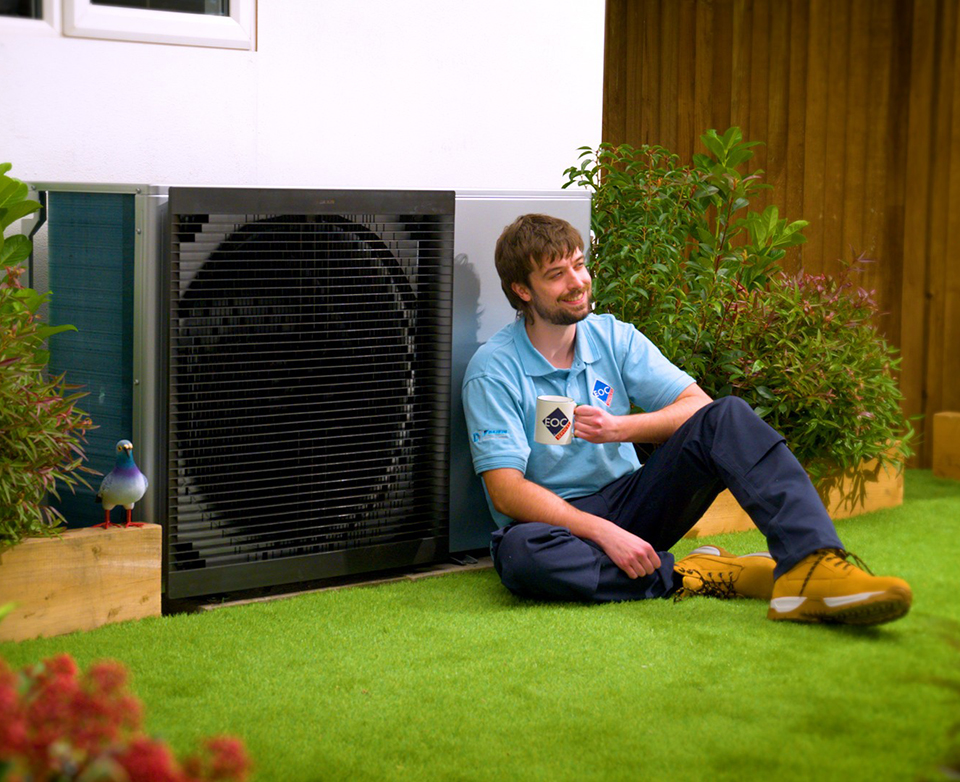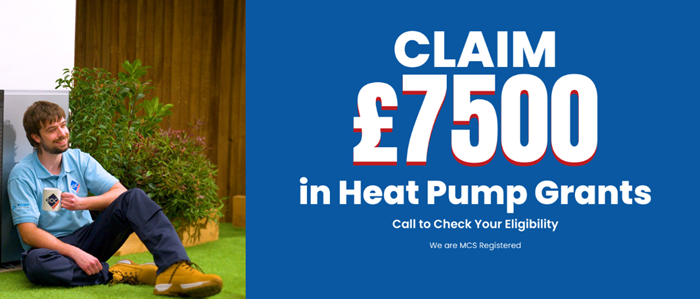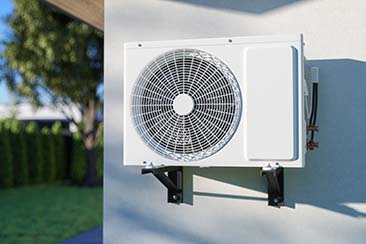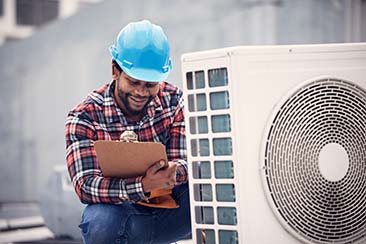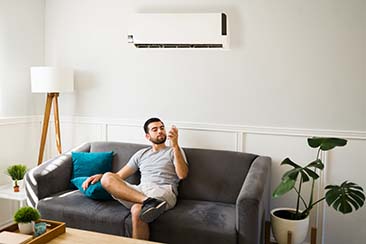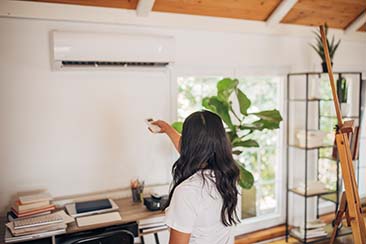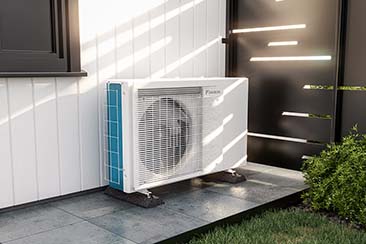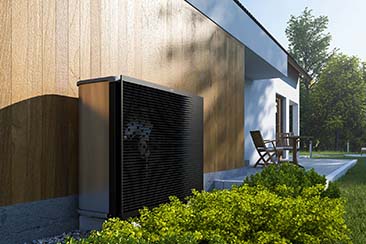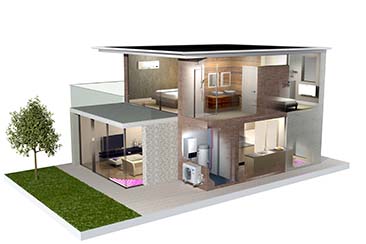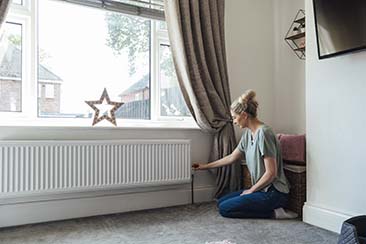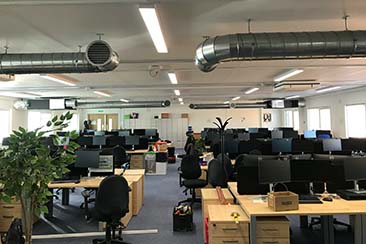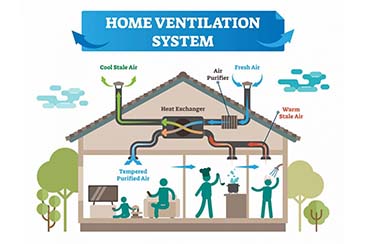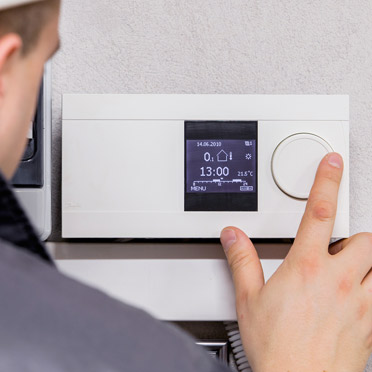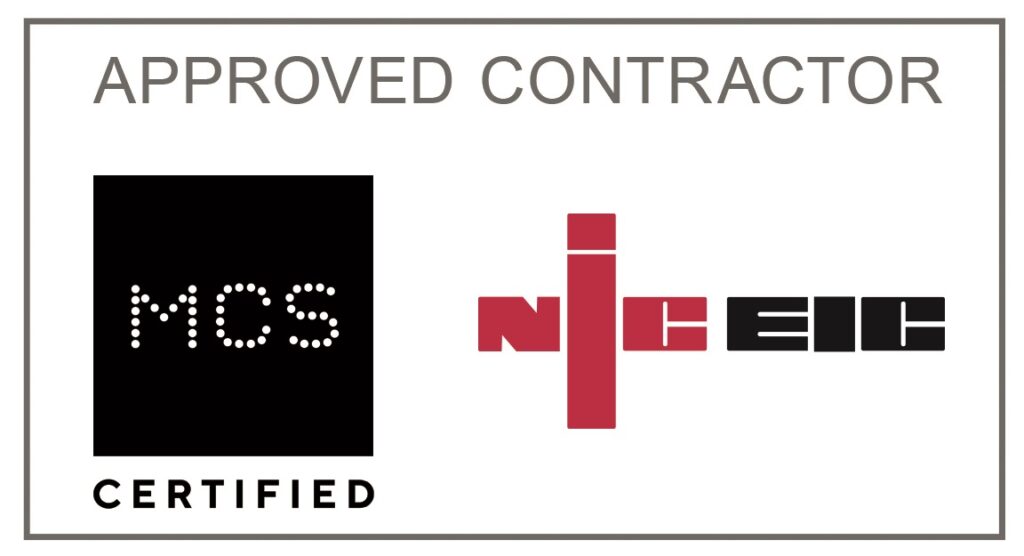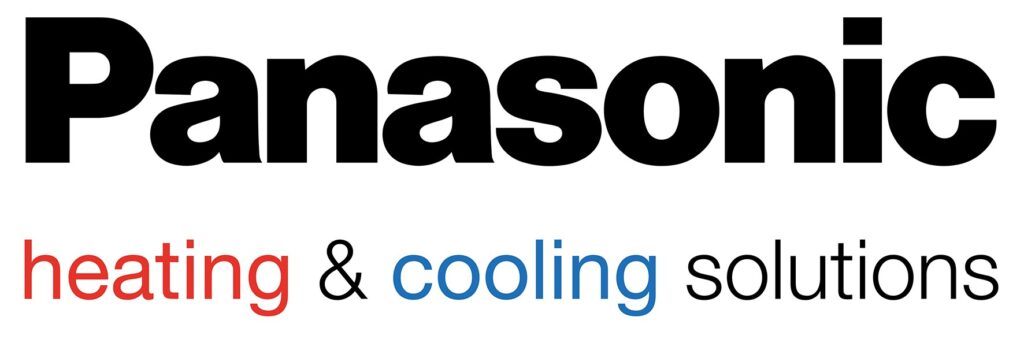A heat pump captures heat from the ambient air, or solar energy stored in the ground or water. Then, using a compression cycle raises this low input temperature to a much higher one, to provide hot water for heating your home.
Electricity is used to carry out this process, the amount used depends on the input temperature, and output flow temperature required. The closer these two temperatures are, the lower the energy required to carry of the operation. Because the system relies on electricity, no carbon is emitted at the point of use.
Heat naturally flows from a warmer place to a colder place. To provide heat to a home when outdoor temperatures are colder, we need heat to flow in the other direction – from a colder to a warmer place.
All heat pumps have a “refrigerant” within the system, in the form of a gas. When the pressure of gas increases, the temperature follows. This relationship between pressure and temperature is key to how heat pumps work.
Heat energy from the air, ground or water is passed through a heat exchanger. This is then absorbed by the refrigerant gas within the heat pump, raising the temperature. The refrigerant is then moved to a compressor, where pressure is applied to create a higher temperature. From here, it passes through to a heat exchanger, where energy is transferred to the primary water flow within the property – delivering hot water to a home.
![]() Your personal information will be kept private and held securely.
Your personal information will be kept private and held securely.
